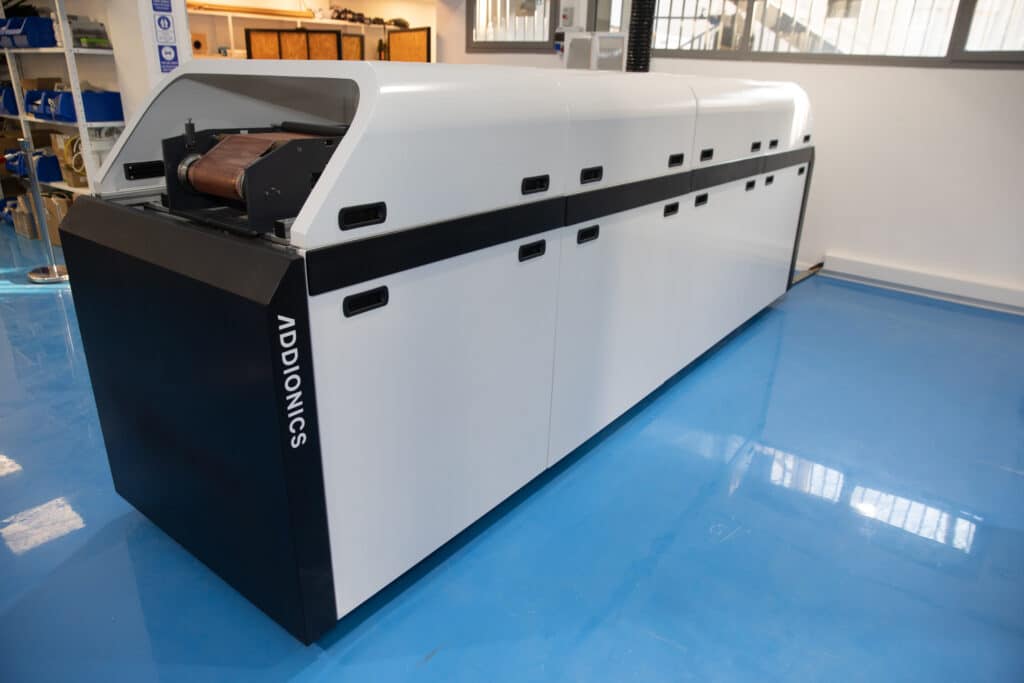GM Co-leads $39M Funding for EV Battery Materials Startup Addionics
Israeli battery technology company Addionics has successfully raised $39 million in a B Series funding round to further the commercialization of its innovative copper and aluminum electrodes for electric vehicle (EV) batteries. The funding round was co-led by General Motors’ venture capital arm, GM Ventures, and Israeli tech venture fund Deep Insight. Notable participants in the investment round include Swedish truck maker Scania, which is owned by Volkswagen’s Traton.
Addionics specializes in advanced battery technologies that aim to enhance the performance, efficiency, and cost-effectiveness of EV batteries. Their unique copper and aluminum electrode designs are poised to make a significant impact in the EV industry by offering improved energy density, faster charging times, and greater longevity compared to conventional battery materials. The infusion of capital will enable Addionics to scale up production and accelerate the integration of their technology into commercial EV applications.

In addition to their investment in Addionics, General Motors (GM) and Scania are also potential customers for the company’s innovative porous, three-dimensional copper and aluminum electrode battery materials. These advanced electrodes are designed to use significantly less material, including a 60% reduction in copper usage, making them a cost-effective and efficient option for electric vehicle (EV) manufacturers.
Addionics claims that their electrodes, which resemble sheer silk scarves when held up to the light, offer several key benefits for EV batteries. They enable faster charging times and can boost EV range by up to 30%. This improved performance can lead to substantial cost savings for automakers, with forecasts suggesting savings of up to $7.50 per kilowatt hour.
“Addionics’ current collector design shows promise in enabling improved battery performance at a lower cost,” GM Ventures managing director Anirvan Coomer said in a statement. “We are eager to support the company’s growth and look forward to continuing to explore opportunities to collaborate in the future.”
Earlier this year, Addionics announced plans to establish a $400 million factory in the United States dedicated to producing copper anodes for electric vehicle (EV) batteries. Set to commence operations in 2027, the facility aims to eventually supply enough anodes for approximately one million EVs annually. This ambitious project highlights Addionics’ commitment to scaling up production and meeting the growing demand for advanced battery materials in the EV market.
The new factory will play a crucial role in accelerating the adoption of Addionics’ innovative copper anode technology, which promises significant benefits in terms of efficiency, cost savings, and performance. By producing these high-performance anodes domestically, Addionics can better support North American automakers and contribute to the region’s transition towards sustainable transportation.
Addionics CEO Moshiel Biton announced that the company will begin delivering battery cells to automakers for testing in late 2024. This marks a significant milestone in their journey toward commercializing their advanced battery technology. Biton expressed confidence that Addionics is on track to deliver products at scale by 2027 or 2028.
The company’s innovative battery cells have attracted considerable interest, and Addionics has been engaged in discussions with virtually all the major automakers in Europe, Japan, and the United States. This widespread engagement underscores the potential impact of Addionics’ technology on the global automotive industry, as it strives to enhance the performance and efficiency of electric vehicles.
By providing automakers with test cells, Addionics aims to demonstrate the practical benefits of their porous, three-dimensional copper and aluminum electrode materials. These benefits include faster charging times, increased EV range, and significant cost savings.
“Legacy automakers are losing money building EVs,” Biton said. “Any technology that allows them to reduce cost and improve performance, that’s the holy grail.”
